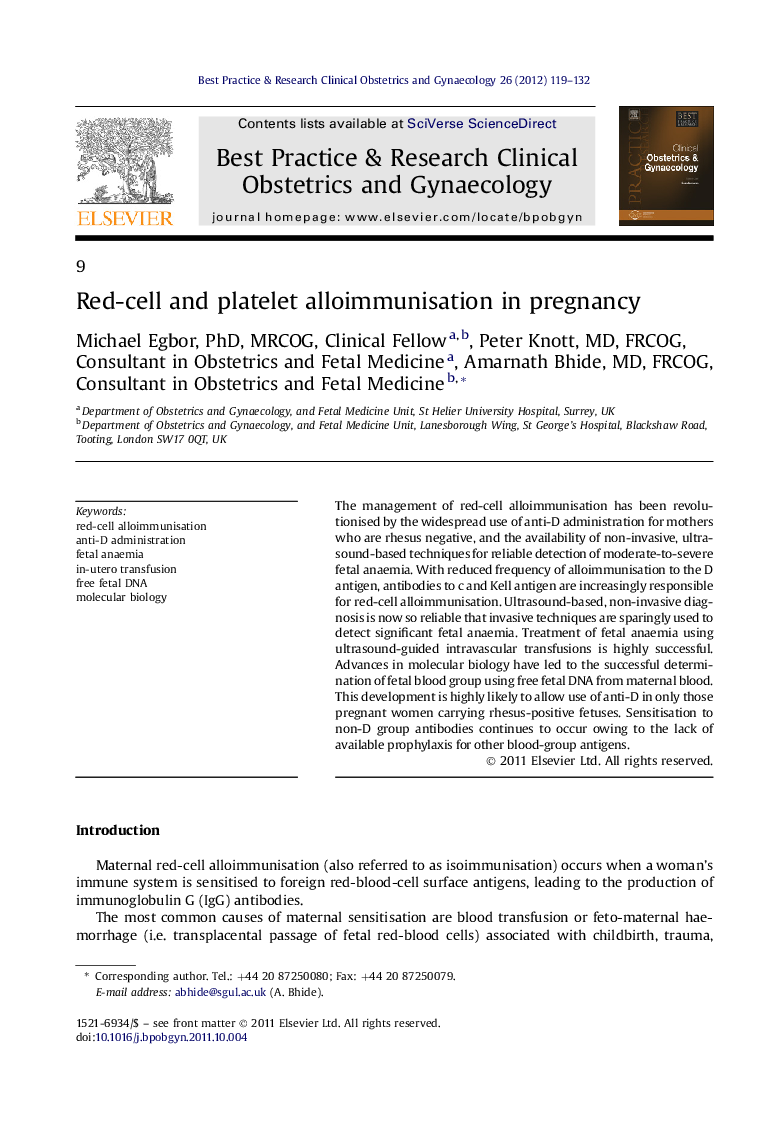| Article ID | Journal | Published Year | Pages | File Type |
|---|---|---|---|---|
| 3907430 | Best Practice & Research Clinical Obstetrics & Gynaecology | 2012 | 14 Pages |
The management of red-cell alloimmunisation has been revolutionised by the widespread use of anti-D administration for mothers who are rhesus negative, and the availability of non-invasive, ultrasound-based techniques for reliable detection of moderate-to-severe fetal anaemia. With reduced frequency of alloimmunisation to the D antigen, antibodies to c and Kell antigen are increasingly responsible for red-cell alloimmunisation. Ultrasound-based, non-invasive diagnosis is now so reliable that invasive techniques are sparingly used to detect significant fetal anaemia. Treatment of fetal anaemia using ultrasound-guided intravascular transfusions is highly successful. Advances in molecular biology have led to the successful determination of fetal blood group using free fetal DNA from maternal blood. This development is highly likely to allow use of anti-D in only those pregnant women carrying rhesus-positive fetuses. Sensitisation to non-D group antibodies continues to occur owing to the lack of available prophylaxis for other blood-group antigens.
